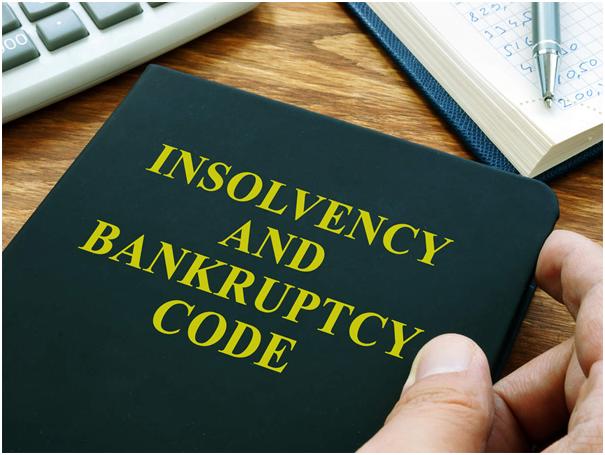M.M. Kumar, J.@mdashChallenge in this petition filed under Article 226 of the Constitution is to the notification dated 26.8.1997 (P-4), issued u/s 4 of the Land Acquisition Act, 1894 (for brevity, ''the Act'') and the declaration dated 25.8.1998 made u/s 6 of the Act (P-5). The petitioner has further prayed for quashing award dated 24.8.2000 (P-6).
2. The facts may be briefly noticed. The petitioner claims that it is a leading automobiles manufacturer of the country and has established a factory constructed on the land, as small part of which has been acquired apart from the huge other area. It is conceded position that a small piece of triangular land, measuring 8 Biswas has been acquired by notifications issued under Sections 4 and 6 of the Act. The petitioner-did not offer any objections u/s 5-A of the Act, however, it has alleged that the award dated 24.8.2000 (P-6) has been passed without complying with the provisions of Section 9 of the Act, as no notice was served on the petitioner. It is claimed that for expansion of its factory, the petitioner has further purchased adjoining land. The petitioner has prayed that the respondents be directed to release the land by exercising power u/s 48 of the Act.
3. A written statement by the Land Acquisition Collector respondent No. 3 has been filed admitting issuance of notification u/s 4 and 6 of the Act. He has also asserted that no objection u/s 5-A, of the Act was filed by the petitioner and, therefore, the petitioner has no locus standi to challenge the acquisition proceedings. The land at the time of issuance of notification u/s 4 of the Act is stated to be vacant land. Respondent No. 3 has also asserted in Para 8 of the written statement that notice u/s 9 of the Act was issued and in any case it is denied that the provisions of Section 9 of the Act have not been complied with.
4. A separate short reply on behalf of the Director, Town and Country Planning, Haryana-respondent No. 4 has also been filed taking the stand that permission for change of land use under the provisions of the Punjab Scheduled Roads and Controlled Areas (Restriction of Unregulated Development) Act, 1963 (for brevity, ''the 1963 Act'') was granted to the petitioner on 30.6.1994 for setting up of an industrial unit on the land measuring 14//5/1/2 (part), 17//10/2/1 and 14//4/2 (Part) of the revenue estate of village Tikri, falling in the controlled area of Gurgaon. The petitioner further sought permission for change of land use for expansion of its industrial unit, which was granted on 6.2.1995, for an area measuring 7103.40 Sq. Yards, comprised in Khasra Nos.l4//4/l (Part) & 5/1/1 of the same revenue estate. The land which is under acquisition in the present case falls on a corner of the petitioner''s industrial site and no building/structure exist on the piece of land at the site. It has further been asserted that as per the conditions of grant of permission for change of land use and as per the undertaking given by the petitioner in the year 1994 and 1995, the petitioner was required to pay balance amount of revised conversion charges amounting to Rs. 6,60,180/-. The petitioner was directed to deposit the aforesaid amount vide office letters dated 14.2.2003 and 19.5.2003. The amount has not been deposited, thus, the terms and conditions for permission for change of land use have not been complied with till date. It has further been asserted that after completion of construction, the petitioner was required to give notice to the Director, Town and Country Planning, intimating that the building was complete in all respects according to the sanctioned plans. He was also required to apply for obtaining occupation certificate on the prescribed form. Since the petitioner has not applied for issuance of occupation certificate, therefore, it has not complied with the provisions of the Punjab Scheduled Roads and Controlled Areas (Restriction of Unregulated Development) Rules, 1965 (for brevity, ''the 1965 Rules''). Accordingly, it is claimed that the plea of change of land use would not come to the rescue of the petitioner.
5. Mr. Rupinder S. Khosla, learned Counsel for the petitioner has raised two contentions. Firstly, he has argued that once permission for change of land use has been given then the land could not be acquired because principles of estoppel would be available to the petitioner. He has then submitted that no notice u/s 9 of the Act was issued, which has caused prejudice to the rights of the petitioner and the acquisition proceedings including award is vitiated.
6. Mr. Ashish Kapoor, learned State counsel has drawn out attention to Para 5 of the reply filed by respondent No. 3 and argued that the petitioner was asked to deposit the balance amount of revised conversion charges amounting to Rs. 6,60,180/-, vide letters dated 14.2.2003 and 19.5.2003 but the same has not been done According to the learned Counsel, once the terms and conditions granting permission for change of land use have not been complied with then no benefit of such an order could be extended to the petitioner. He has further argued that notice u/s 9 of the Act has been issued as per para 8 of the reply filed by the Land Acquisition Collector-respondent No. 4 and that there is no replication to the aforementioned assertion made by the respondents.
7. Having heard learned Counsel for the parties and perusing the paper book we are of the considered view that this petition lacks merit and the same is liable to be dismissed. Apart, from the fact that a small piece of 8 Marlas of land is sought to be acquired, we find that all necessary steps from the stage of issuance of notification u/s 4 of the Act till the announcement of award and disbursement of compensation have been taken by the respondents. The petitioner has failed to file any objections u/s 5-A of the Act, which was the first stage available to the petitioner to agitate for their rights, if any. The petitioner also failed to make any representation after issuance of declaration u/s 6 of the Act for release of land by the respondent State u/s 48 of the Act. The award in the present case has been announced on 24.8.2000 (P-6) whereas the writ petition has been filed on 22.12.2006, which is more than six years after the award. It is well settled that the writ petition itself would not be maintainable after such a huge delay, as has been held by Hon''ble the Supreme Court in the case of
8. The argument of Mr. Khosla that no notice u/s 9 of the Act has been issued has failed to impress us because firstly the reply filed by respondent No. 3 has categorically asserted that a notice u/s 9 of the Act was issued to the petitioner. Even otherwise, non-issuance of notice u/s 9 of the Act would not vitiate the award, as has been held by Hon''ble the Supreme Court in the case of
9....Equally, even if there is an irregularity in service of notice under Sections 9 and 10, it would be a curable irregularity and on account thereof, award made u/s 11 does not become invalid. Award is only an offer on behalf of the State....
Likewise, such an argument was rejected in the case of
5. It is then contended by Mr. U.R. Lalit, that the respondents had not been given the information of the notification u/s 9 of the Land Acquisition Act. Therefore, the award is bad in law. We find no force in the contention. In the absence of notice or failure to serve notice, the award does not become invalid. Due to the fact that immediately after the award and before the publication of the award, the writ petition came to be filed on 25.9.1980, we direct the appellants to make an application within six weeks u/s 18(1) of the Land Acquisition Act seeking reference. The Land Acquisition Officer is directed to refer the matter to the competent civil court for disposal within two months according to law.
9. In view of the above, the argument raised by learned Counsel for the petitioner is without any substance and we have no hesitation to reject the same. The other argument that permission for change of land use was granted and it would operate as estoppel does not require any serious consideration because the petitioner has failed to comply with the conditions granting permission because the amount of Rs. 6,60,180/-, which was sought to be recovered from the petitioner on 14.2.2003, had not been deposited till date. Therefore, no argument on that basis could be validly raised. The writ petition is, thus, liable to be dismissed.
10. For the reasons aforementioned, this petition fails and the same is dismissed.

